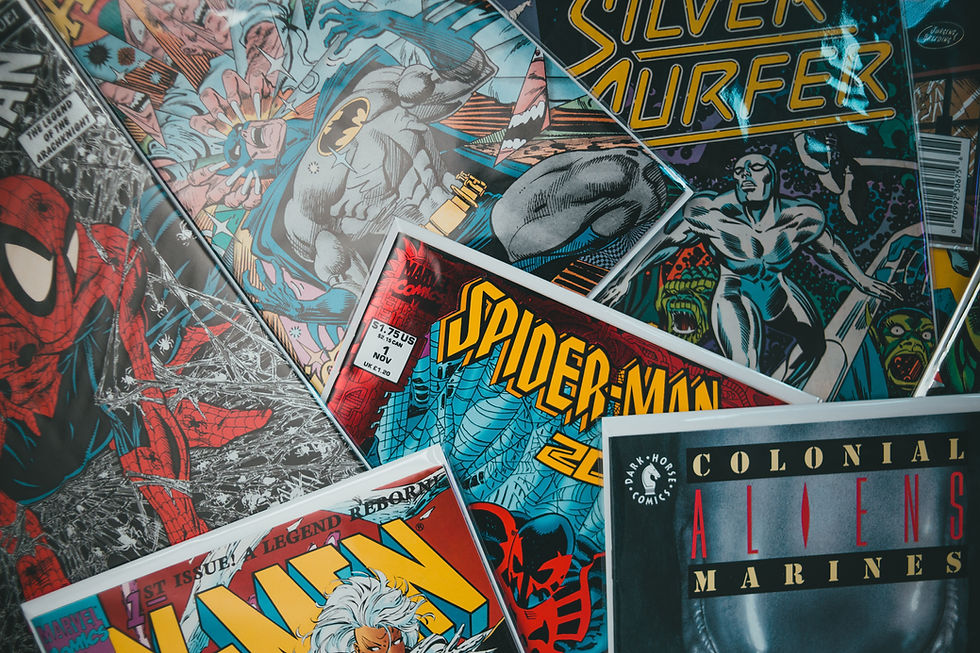"Technology, this crutch that transforms our daily lives into nails"
- mariealixdalle
- Jun 25, 2023
- 4 min read
Faced with the environmental, societal or economic challenges that await us, we all, even the most skeptical among us, have only one word on our lips: adaptation.
Adaptation is the ability to change to better match or better support an environment, or situation. This requires flexibility, agility, and creativity.
And yet technology, sometimes invoked as a lifesaver, by infiltrating each day more intimately into our daily lives, is gradually depriving us of our innate and essential ability to adapt.
This detachment from our sense of adaptation is not an intrinsic characteristic of technology, nor its main intention, but the consequence of the behaviors it induces in us.
Technology is not the solution (nor the problem), but what we do with it will tip the balance one way or the other on the environmental scale.
Back to our nails
Let's start with this quote from Abraham Maslow (in addition to his famous pyramid): “If the only tool you have is a hammer, you tend to see any problem as a nail.”. By generalizing the hammer to technology, the observation is that the use of technology standardizes our relationship to our daily environment and cuts us off from the other innate resources and tools that we have at our disposal.
Here are a few examples that may seem insignificant but illustrate the evolution of our behavior under the influence of technology: with the systematic use of GPS, we no longer develop our sense of direction, with the automation of cars we do not know no longer how to repair them ourselves, with mobile phones we no longer remember the telephone numbers of loved ones.
Of course, in most of these cases, technology allows us to do certain things faster, and it is not a question of advocating a return to the stone age, simply of questioning some of our uses of technology and their frequency.
It's paradoxical...
Because while technology allows us to do certain things faster or more efficiently, it is very rare that we actually save time or resources using it. This is the Jevons paradox, also known as the rebound effect. Indeed, it is very common to see that technological advances that should save us time/money/resources rarely result in any savings because the use of this technology changes our behavior to ultimately use more resources, with a constant financial or temporal budget.
The most telling example of this paradox is the private car. Always faster (always driving more km per hour), always more fuel efficient (each time using less fuel per km), and yet instead of saving time or money, its driver just travels more miles, for a roughly constant average daily travel time through the ages whether on foot, on horseback or in two horses.
No Magic!
Which makes today the phrase “but I need my car!” is so common, is that it is of course impossible to live in exactly the same way with and without a private car. This also applies to other technological crutches that have transformed our daily lives.
And it is precisely when technology shifts from supportive to dependent that it alienates us and robs us of our coping skills while robbing us of our freedom.
Because by artificially removing constraints, technology deprives us of our creativity.
From constraint comes creativity
Let's take the example of the private car again: this oversized and oversubsidized tool, making it possible to transport more than 3 times our real needs (average occupancy rate of 1.2), for 600 times less expensive than the French minimum income (it takes 30 days of human labor to provide as much energy as 1 liter of gasoline) removes all constraints from our daily lives: we can move anywhere when we want, without asking any logistical questions.
As there is no magic, this mode of transport depends on a source of energy that is not inexhaustible and whose cost can change. And when shortages or increases have been felt in recent months, our dependence on this technology has come to the fore and is so advanced that it is, in many cases, impossible to consider other modes of transport.< /p>
Indeed, having this tool, the response to each trip is systematically the same: “single car”. Even if it means being stuck for hours in traffic jams, bringing the average speed of this mode of transport to 16km/h (or less than a bicycle).
While without a car, creativity is stimulated and each trip has its own flavor: short trips bring the dose of daily sport, to the sound of birds and the scent of flowering trees (eg: cycling); average journeys allow to meet unexpected people and broaden the vision of the world (ex: covoit); long journeys leave time to take a step back, update the reading list, work, or finally rest (eg train). And it is of course possible, even encouraged, to couple these modes of transport together to reach your destination!
What if you need to carry a lot of stuff? And if we must be able to return at a late hour? The “technological” answer: “the individual car”.
The “creative” answer?
Of course it is impossible to live exactly the same way without a car. But doing otherwise is not necessarily synonymous with a deterioration in the quality of life: it is dependence on the car that prevents us from seeing the alternatives.
Here are some of them: regarding the transport of objects, you can ask yourself if everything is essential to take only the essentials, you can also find out if the object can be available at your destination, a cart can be added to the bike, and finally you can use a self-service or shared car. Regarding the fact of returning late, you can organize your schedule according to public transport schedules, or choose to sleep on site, or take the opportunity to visit the places the next day.
Utopia or future?
These alternatives may not be right for you or may not be suitable for your lifestyle. You may find me utopian or “disconnected”.
The purpose of this text is simply to provoke reflection on our growing dependence on technology and the withering of our creativity (accelerating with ChatGPT) which we nevertheless greatly need to adapt.
Technology is not to be rejected, the poison lays in the dose.
What use are technologies or artificial intelligences that deprive us of our innate abilities? Then the robots may dominate the world but we will have chosen it...





Comments